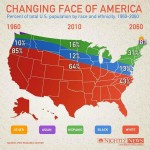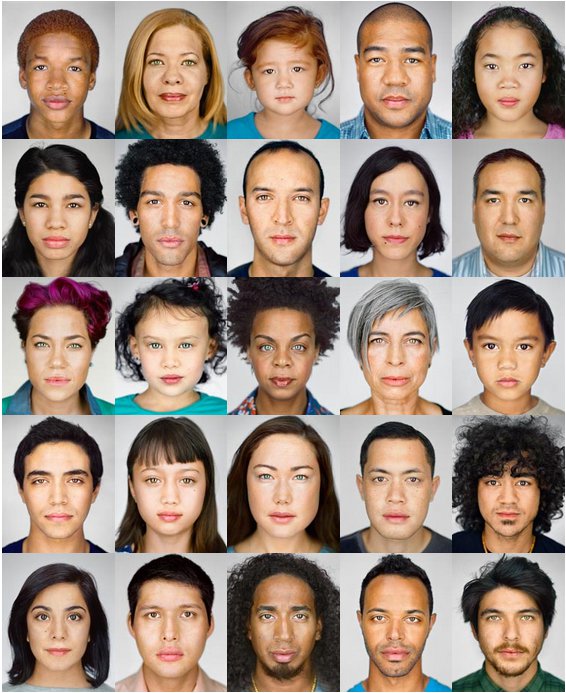Mixed Roots Stories’ mission is: Supporting and advocating for diverse Mixed communities through the power of sharing stories. To that end we offer our platform to promote storytellers @ https://mixedrootsstories.com/promote-your-story/, so we are sharing an essay by Chad Davis originally posted on Dissident Voice.
Author: Mark
CMRS 2018 Storytellers Wanted
2018 Critical Mixed Race Studies
Call for Papers DEADLINE EXTENDING TO AUGUST 18TH!
Resisting, Reclaiming, and Reimagining
March 1 – 3, 2018
University of Maryland
Deadline: AUGUST 18, 2017, 11:59 PM
Notification: Mid September 2017
Presenters at the conference must be members. https://aaichicago.wufoo.com/forms/r1skfsoa0z4uu2q/
Subject Fields: We welcome submissions from scholars from all fields, cultural workers, and activists.
Formats: We welcome individual papers, panels, round tables, workshops or Mixed Roots Stories is looking for live performances and video. For example the live performances can be stand-up comedy, spoken word, dance, short scenes, monologues, vocalists, musicians – or other forms of live performance for our #CMRS2018 LIVE event. Please note the performances and/or video can also submit as a Workshop.
For more info: https://criticalmixedracestudies.wordpress.com/cmrs2018-ca…/
The conference will be hosted at the University of Maryland, March 1-3, 2018 and will include film screenings and a live performance showcase produced by Mixed Roots Stories.
THEME
Resisting, Reclaiming, and Reimagining, the next Critical Mixed Race Studies conference seeks to highlight resistance against white supremacy around the globe, the reclamation of community, kinship, and identity within the mixed-race community, and the reimagining of racial difference. Recent events demonstrate that white supremacy, coupled with sexism, xenophobia, transphobia, homophobia, and unchecked capitalism, is still central as an organizing principle and tool of domination. For example, borders and walls (both real and imagined) are being invoked by the current United States administration to marginalize people and combat the inevitable demographic shifts which will see this country become majority minority. By focusing on the resistance, reclamation, and reimagination of multiraciality, this interdisciplinary and transnational conference will be a forum dedicated to fostering relationships between people of color, dismantling racial hierarchies, and affirming an ethics of love to subvert dominant paradigms of social identity.
Apply online: https://goo.gl/forms/2Qwm0Sqw60FlLVzw1
Short Film Contest – $50,000 Plus More in Prizes for Three Filmmakers
$50,000+ IN PRIZES WILL BRING 3 FILMMAKERS’ DREAM PROJECTS TO LIFE
Project Film Supply (#ProjectFilmSupply) wants to help filmmakers bring their vision to life. According to Daniel McCarthy this is how it works:
Step 1: For the month of August, we’ll ask the filmmaking community to submit a short film idea + mood board for the project they’ve always dreamed of creating.
Step 2: Those who submit an idea will ask their friends, family, and followers to vote for their projects.
Step 3: The Community + TMB will decide which three stories rise to the top and which one absolutely has to become a reality (the two runners up will receive loads of incredible prizes)
This is your chance to bring your dream project to life! Click on the Link above to learn more and to apply!
Alicia Upano: Writer, Digital Media Specialist & Contributor to the Mixed Race Initiative
Podcast: Play in new window | Download
Audio clip: Adobe Flash Player (version 9 or above) is required to play this audio clip. Download the latest version here. You also need to have JavaScript enabled in your browser.
We are excited to bring you a second interview in partnership with the Asian American Literary Review and its Mixed Race Initiative. Writer and Digital Media Specialist Alicia Upano is our guest. Alicia collaborated with Maya Soetoro-Ng to contribute writings to “Mixed Race: Is A Pandora’s Box” about their Hawaiian mixed experience. Join us as we explore the impact of growing up in the most diverse state in the union and how that informed her writings. We want to thank Maggie Yiin for joining us in interviewing Alicia. Maggie was a Guest Editor for the Mixed Race Initiative.
2 Girls | 1 Asian: A New Webseries
At Mixed Roots Stories we strive to support any effort to share stories of the Mixed experience. 2 Girls | 1 Asian is a comedic webseries co-created, produced, and starring Kelly Colburn and Kaela Mei-Shing Garvin. They created the series, because, as Kelly and Kaela stated, “we don’t often see ourselves reflected in the entertainment we’re offered.”
Webseries Description “It follows Caela and Kelliye through breakups, career trials, apartment troubles, and even fissions within their friendship, but ultimately it’s the story of two girls who value each other more than they value the mistakes the other makes. Our perspective on race in America gives us a unique filter through which to view the “single girl in the big city” narrative, so our episodes actively work to subvert Asian American stereotypes we’re tired of seeing while passing the Bechdel test. We launched our independent, fully crowd-funded production online on June 5, 2014, and are releasing an episode each Thursday at 9pm through mid-July.”
ENJOY!
Our Offspring Will Challenge Our Assumptions About Identity
Wow! Omilaju Miranda’s story packs a punch. She gives a snapshot of her particular struggle with raising a mixed-race daughter that does not have her phenotype. Her daughter has many questions on identity that were revelatory for the author and you too will be intrigued by her responses, so please read it and share on our Facebook page if you have had a similar experiences.
For further reading, I recommend The Family Pangea by our guest blogger Sky Obercam.
——
Omilaju Miranda (“Omi”) is the founder of Mixed Diversity Reads Children’s Book Reviewhttp://mixeddiversityreads.com/ , a nonprofit site, which reviews Young Adult and children’s picture books with protagonists from culturally marginalized groups including those with interracial, transracial, lgbt, gender non-conforming, bilingual, and single parents. Omi has been published in Mixed Nation and has also founded the art and literary blog zine, Parenting My Interracial Family http://myinterracialfamily.com/ . A former Javits Fellow, she is a graduate of Columbia University, received her MFA in creative writing from Virginia Tech, and can be followed @diversekidreads or @Multiracefamily or on Facebook.
When Do We Count and Why?
Why do we have a census count every ten years and does it really matter? The question popped into my head while reading a fascinating article by Tanzina Vega of the New York Times: Census Considers How to Measure a More Diverse America – about the preparations for the 2020 census and the challenges on how best to measure diversity.
Representatives and direct Taxes shall be apportioned among the several States which may be included within this Union, according to their respective Numbers, which shall be determined b adding to the whole Number of free Persons, including those bound to Service for a Term of years, and excluding Indians not taxed, three fifths of all other Persons. The actual Enumeration shall be made…within every subsequent Term of ten Years, in such Manner as they shall by Law direct.
Since the census is enumerated in the Constitution it is clearly a political activity and as you can see by the 3/5 clause and the exclusion of “Indians not taxed” it has its pitfalls and has continued so every ten years since then.

I am Mixed
 I am Mixed. What does that mean? I do not know, because I have not fully explored my Mixed identity, during the last 30 years. Furthermore, until recently, I did not have a community/place to share my story and compare notes.
I am Mixed. What does that mean? I do not know, because I have not fully explored my Mixed identity, during the last 30 years. Furthermore, until recently, I did not have a community/place to share my story and compare notes.
Please don’t misconstrue, I do experience otherness on a daily basis, but I function on autopilot as I engage with the different circles I operate in. It is always with strained tension between who I am, which has been fuzzy, and who I think people assume I am.
What do I say to people when they ask me “what are you?” (add your own version of this question). I reply, Irish (with emphasis), Portuguese (with emphasis), Native American (with emphasis), and African-American or African or Black (with apology). It hurts me to write this because of the painful experience of not belonging; an outlier like Pluto (after finding out it is not a planet).
As a male, I accepted my status with passive frustration, but hey, I thought to myself, that was my lot in life. Moreover, I had no desire for kids and I have no kids. Furthermore, I had the good fortune of only seriously dating people that did not want kids. Hence, I had no pressure of worrying about how my mixedness and their mixedness would impact our lives.
I mention this because most of the leaders in the Mixed movement are women, which I believe stems from their historical role as the primary caregiver for kids. Consequently, they’re more likely to be immersed in understanding and defining the terms of Mixedness to better help their offspring.
I’m Mixed, but now it is beginning to have meaning, because I’m immersed in the Mixed experience. I’m now writing and curating content for Mixed Roots Stories. I must admit it is a challenge to write about the Mixed experience, because it reveals my deepest insecurities around self-identity. So much so that I’ve been unable to write: suffering in silence.
No more. I need to talk and tell stories. Oy, I feel vulnerable.
It is a struggle, but sharing this story is a beginning.
Why do humans perceive an Other and does it Matter?
A challenge of the human condition is overcoming bias from others and from within ourselves. One very problematic bias is the Other-Race Effect. We categorize people based on assumed racial features as either Us or Other. Why does this happen? The oft political response is that people or societies are racist , but that answer does not satisfactorily answer the question.
For me, this kind of question demands that we focus on the evolutionary origin of the trait?” Finding the root is an effective means of understanding causation then working towards changing the effect (i.e. outcome). That is why I found Ross Pomeroy’s, commentary in Big Think on the subject of “The Other Race Effect” intriguing.
Pomeroy clearly articulates why the issue should be studied, then highlights research that offer the most promising hypothesis for why we do it. Finally, he closes with answers to the most important question, “Is there any way to prevent or minimize the Other-Race Effect?” Pomeroy’s response is, yes. As he reports:
If infants regularly see and interact with people of other races before nine months of age, the Other-Race Effect may never emerge. But for those who are already inept at distinguishing between people of other ethnicities, don’t fret, there’s still hope. According to University of London psychologist Gizelle Anzures, “the Other-Race Effect can be prevented, attenuated, and even reversed given experience with a novel race class.”
Storytelling is a fundamental to human interaction and can be an effective means of overcoming bias, but stories work best when shared in a safe space. Mixed Roots Stories provides an online platform for sharing and engaging with stories. What is your story?
The Singer and The Songwriter Album Release Show
Doors: 7:30 PM (ends at 11:00 PM)
All Ages







